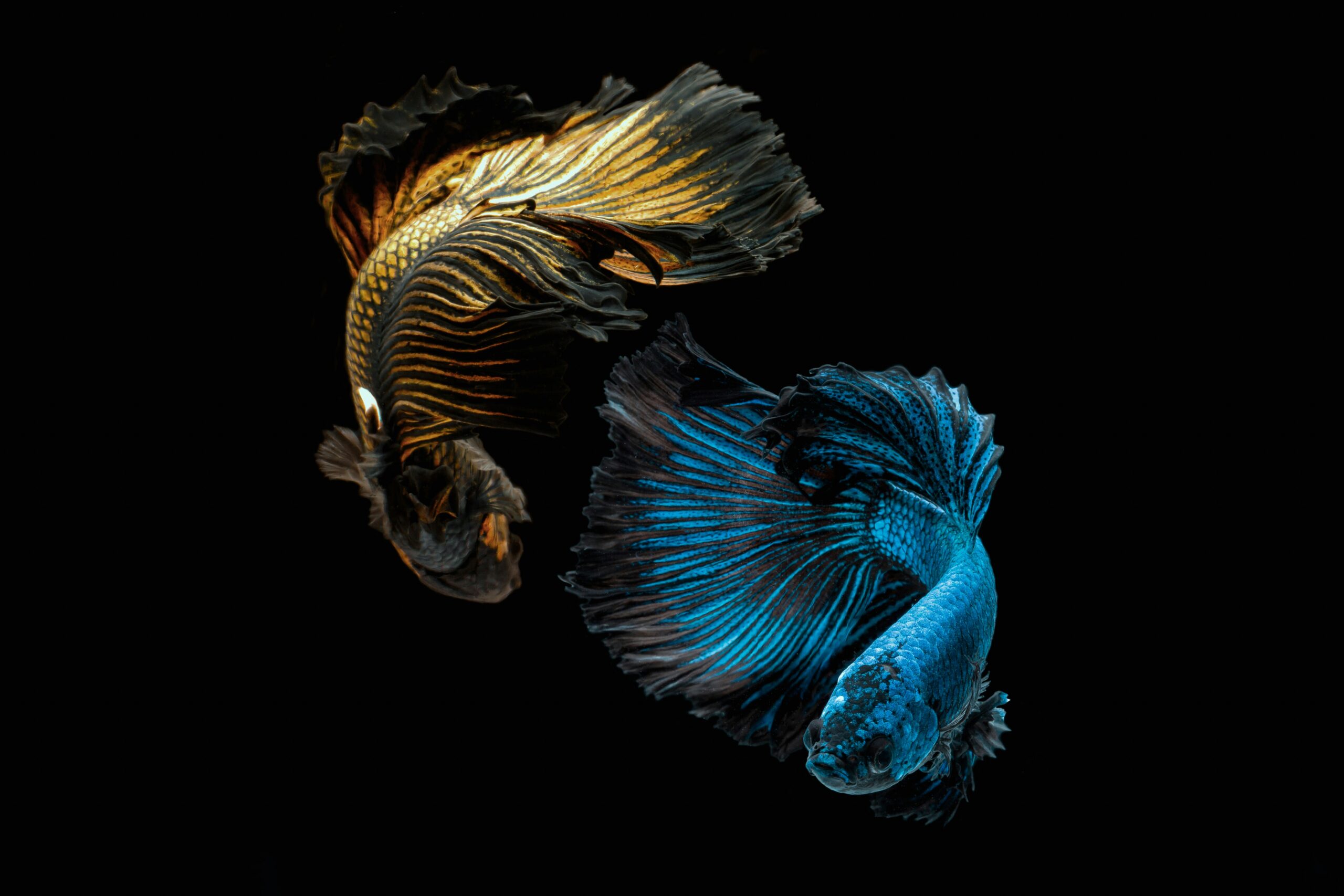How Long Can a Betta Fish go Without Food?
While betta fish are known for their ability to survive in harsh conditions, it is important to remember that they still require regular meals to maintain optimal health. Betta fish are tropical fish, native to the rice paddies and shallow waters of Southeast Asia. In their natural habitat, they have access to a variety of small insects, larvae, and other invertebrates that make up their diet.
Factors Affecting How Long Betta Fish Can Go Without Food
When it comes to how long a betta fish can go without food, there are a few factors to consider. Firstly, the age and overall health of the fish play a significant role. Younger, healthier bettas can generally go longer without food compared to older or weaker ones. Additionally, the temperature of the water also affects their metabolism. In colder water, their metabolic rate slows down, allowing them to survive longer periods without food.
Recommended Feeding Routine for Betta Fish
On average, a betta fish can survive for about two weeks without food. However, this is not ideal and should not be practiced as a regular feeding schedule. Just like any living creature, prolonged periods without food can lead to malnutrition, weakened immune system, and overall decline in health.
It is crucial to establish a regular feeding routine for your betta fish. Most bettas should be fed once or twice a day, with small portions that they can consume within a few minutes. Overfeeding can lead to obesity and other health issues, so it is essential to provide them with the right amount of food.
Importance of a Balanced Diet for Betta Fish
In addition to regular feeding, it is also important to provide a balanced diet for your betta fish. While they can survive on a diet of only pellets or flakes, it is recommended to offer them a variety of foods to ensure they receive all the necessary nutrients. Some options include frozen or live foods such as bloodworms, brine shrimp, and daphnia.
Overall, while betta fish have the ability to survive without food for a short period, it is essential to provide them with regular meals to ensure their health and well-being. Establishing a proper feeding routine and offering a balanced diet will help keep your betta fish happy and thriving.
Adaptations of Betta Fish for Surviving in Harsh Environments
Betta fish, also known as Siamese fighting fish, are native to the rice paddies and slow-moving streams of Southeast Asia. In the wild, they have developed several adaptations that allow them to survive in environments with limited food resources.
1. Labyrinth Organ
One of the most remarkable adaptations of betta fish is their labyrinth organ. This specialized organ allows them to breathe air directly from the surface, enabling them to survive in oxygen-depleted water. This adaptation is particularly useful in their natural habitat, where stagnant water and low oxygen levels are common. The labyrinth organ acts like a lung, allowing bettas to extract oxygen from the air and supplement their gill respiration. This unique ability gives them a significant advantage over other fish species that rely solely on gill respiration.
2. Slow Metabolism
Furthermore, bettas have a slow metabolism, which helps them conserve energy and survive for extended periods without food. In their natural environment, food sources can be scarce, especially during the dry season when water levels decrease and prey becomes less abundant. The slow metabolism of bettas allows them to adapt to these conditions by reducing their energy requirements. They can go for days without eating, relying on their fat reserves for sustenance. This adaptation not only helps them survive during periods of food scarcity but also allows them to thrive in their natural habitat.
3. Tolerance for Varying Water Conditions
Another adaptation of betta fish is their ability to tolerate a wide range of water conditions. They are known for their resilience and can survive in waters with varying pH levels and temperatures. This adaptability is crucial for their survival, as their natural habitat experiences significant fluctuations in environmental conditions. Bettas have evolved to withstand these changes, enabling them to thrive in diverse aquatic environments.
4. Territorial and Aggressive Behavior
In addition to their physical adaptations, bettas also exhibit behavioral adaptations that aid in their survival. They are highly territorial and aggressive, which is why they are often referred to as Siamese fighting fish. This aggressive behavior helps them defend their territory and limited resources from other fish species. By staking out a small area as their own, bettas can secure access to food and shelter, increasing their chances of survival in their natural habitat.
Overall, the natural adaptations of betta fish have allowed them to thrive in their native Southeast Asian habitats. From their labyrinth organ that enables them to breathe air to their slow metabolism that helps them conserve energy, these adaptations have equipped bettas with the necessary tools to survive in environments with limited food resources. Their ability to tolerate a wide range of water conditions and their aggressive behavior further contribute to their success in the wild. Understanding these adaptations not only enhances our appreciation for these beautiful fish but also sheds light on the remarkable ways in which organisms adapt to their environments.
Consequences of Not Feeding Betta Fish
When a betta fish is deprived of food for an extended period of time, it can lead to various health issues. One of the most common problems is malnutrition. Betta fish require a diet that is high in protein, and without regular meals, they may not be getting the essential nutrients they need to stay healthy. This can weaken their immune system, making them more susceptible to diseases and infections.
Additionally, prolonged fasting can also result in a decrease in energy levels and overall lethargy. Betta fish are known for their vibrant colors and active behavior, but when they are deprived of food, they may become less active and appear dull in color. This can be a sign of their body conserving energy and going into a state of hibernation to survive the lack of food.
Furthermore, the lack of food can also have an impact on their digestive system. Betta fish have a relatively short digestive tract, and without regular meals, their digestive system can become sluggish. This can lead to constipation, bloating, and even swim bladder disorders, which can cause the fish to have difficulty swimming and maintaining balance.
It is important to note that while betta fish can survive for short periods without food, it is always best to provide them with regular meals. If you are planning to be away for an extended period of time, it is recommended to make arrangements for someone to feed your betta fish or invest in an automatic fish feeder. These feeders can be programmed to dispense small amounts of food at regular intervals, ensuring that your betta fish receives the nourishment it needs even in your absence.
In addition to the physical risks, not feeding your betta fish can also lead to behavioral changes. A hungry betta fish may become more aggressive, as they are constantly searching for food and may view other fish as competition. This aggression can lead to fin nipping and fights, causing stress and potential injury.
A lack of proper nutrition can also affect the reproductive health of betta fish. Without a balanced diet, female bettas may have difficulty producing eggs and males may have reduced fertility. This can hinder their ability to reproduce and may lead to a decline in the overall population of betta fish.
Feeding your betta fish a varied diet is essential to ensure they receive all the necessary nutrients. Without a balanced diet, betta fish may develop nutrient deficiencies, such as a lack of essential vitamins and minerals. This can lead to various health issues, including poor growth, weakened bones, and impaired organ function.
A hungry betta fish is likely to experience increased stress levels. Constant hunger can cause anxiety and agitation, leading to a decline in overall well-being. Stress can also weaken the immune system and make the fish more susceptible to diseases and infections.
Proper nutrition plays a crucial role in maintaining the vibrant coloration of betta fish. Without a balanced diet, their colors may fade or become dull. This can detract from their natural beauty and indicate underlying health issues.
A lack of food can result in decreased energy levels in betta fish. They may become lethargic, less active, and show signs of weakness. This can impact their overall quality of life and prevent them from engaging in normal behaviors, such as exploring their environment or interacting with other fish.
It is important to provide your betta fish with a proper and balanced diet to ensure their overall health and well-being. Regular feedings, consisting of high-quality pellets, frozen or live foods, and occasional treats, will help maintain their vitality and longevity. Consult with a veterinarian or a knowledgeable fish expert to determine the specific dietary needs of your betta fish and provide them with the best care possible.
Tips for Feeding Betta Fish:
Monitor Your Betta’s Eating Habits:
It’s important to pay attention to your betta fish’s eating habits. If you notice that your fish is consistently not eating or has a decreased appetite, it could be a sign of an underlying health issue. Consult with a veterinarian who specializes in fish to determine the cause and appropriate treatment.
Adjust Feeding Amounts Based on Activity Level:
Betta fish have different activity levels, and their feeding requirements can vary. If your betta fish is more active and constantly swimming, they may require slightly more food. On the other hand, if your betta is less active or spends more time resting, adjust their feeding amounts accordingly to prevent overfeeding.
Be Mindful of Water Temperature:
The temperature of the water can affect your betta fish’s metabolism and appetite. Betta fish are tropical fish and thrive in water temperatures between 76°F and 82°F (24°C and 28°C). Ensure that the water temperature in their tank remains within this range to promote healthy eating habits.
Avoid Feeding Betta Fish Human Food:
While it may be tempting to share your leftovers with your betta fish, it is important to avoid feeding them human food. Many human foods contain additives, spices, or oils that can be harmful to bettas. Stick to a diet specifically formulated for bettas to ensure their nutritional needs are met.
Take Note of Any Changes:
Regularly observe your betta fish for any changes in their appearance or behavior. Sudden weight loss, bloating, or lethargy could indicate a health issue that may require veterinary attention. Keeping a close eye on your betta’s overall well-being will help you catch any potential problems early on.

